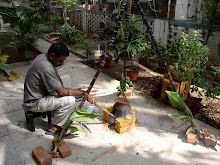Source Textile World.
US textile manufacturers are deeply concerned about legislation introduced in the Senate last week that would provide duty-free treatment for apparel imports from some of the poorest nations in Asia.
The legislation's sponsors, Sens. Dianne Feinstein, D-Calif., and Kit Bond, D-Mo., say it is designed to help 14 impoverished nations sustain "vital export industries and promote economic growth and stability," but US manufacturers say it will undercut existing preferential trade agreements and cost American jobs.
While the bill calls for use of yarn and fabric made in the United States or the participating countries, it allows for yarn and fabric inputs from anywhere in the world during the first eight years of the proposed agreement.
US textile manufacturers see it as a potential conduit for yarn and fabric made in China, and in addition, they fear it will undercut virtually every preferential trade agreement the United States has with nations and regions such as Mexico, the Caribbean, African nations that are participants in the African Growth and Opportunity Act; and bilateral agreements with other countries throughout the world.
An analysis of the bill by the National Textile Association (NTA) concludes "it will give duty-free access to a quantity of apparel assembled in the beneficiary countries and third parties at a level approximately equal to historic trade under general rates of duty.
It is not likely to lead to increases of US inputs." In addition, NTA expects most of the growth would come from Bangladesh, which already is a major exporter of apparel.
The American Manufacturing Trade Action Coalition points out that Bangladesh already is the third-largest exporter of apparel to the United States, just behind China and Vietnam; and Cambodia, another participant, is not far behind. Many of the 14 designated countries do not have any textile manufacturing capability, and, therefore, would not benefit from the legislation on a scale anywhere near as great as the already dominant apparel-exporting countries.
Cass Johnson, president of the National Council of Textile Organizations, sees the bill as a boon to US retailers and other importers, as they would not have to pay the nearly $1 billion in duties they currently pay on imported goods from Bangladesh and Cambodia. "They would be getting a billion dollar bailout under the guise of helping impoverished countries," he said.

No comments:
Post a Comment